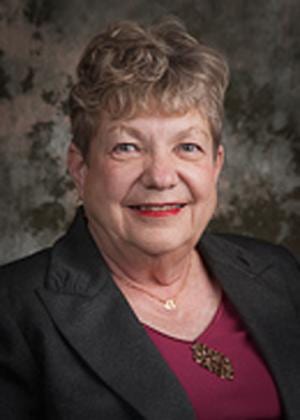UPDATE JAN 16: Gay students feel betrayed by Halton Catholic board
UPDATE JAN 10: Xtra story on Halton Catholic GSA ban sparks outrage
UPDATE JAN 12: Halton students may launch human rights challenge
JAN 6: With the world’s spotlight on the It Gets Better campaign and gay teen suicides, the urgency for schools to create gay-straight alliance (GSA) groups seems obvious.
But while the Ontario Ministry of Education thinks GSAs are important, the Halton Catholic District School Board (HCDSB) takes a different view. The HCDSB feels the groups are harmful and has issued a ban on GSAs altogether.
“We don’t have Nazi groups either,” rationalizes board chair Alice Anne LeMay. “Gay-straight alliances are banned because they are not within the teachings of the Catholic Church.”
“If a gay student requests a gay-straight alliance they would be denied,” she says flatly. “It’s not in accordance with the teachings of the church. If they wanted to have a club outside of school, fine, just not in school.”
As of 2011, all Ontario school boards have equity and inclusive education policies that help schools provide safe and positive environments for students of all races, religions and sexual orientations. The policies, which encourage GSAs, give schools the tools to deal with discrimination.
“Schools that have GSAs are a lot more open, caring, welcoming and a whole lot safer,” says Helen Kennedy, executive director of Egale Canada, who has been involved in the fight against homophobia and transphobia in schools for the past two years. She is quick to point out that many other Catholic schools in Ontario have GSA groups.
Michael Pautler is the education director of the HCDSB, a board responsible for 40 elementary schools and eight secondary schools, a total of about 29,000 students. He tries to explain the ban to Xtra, saying the amendment was made to the equity and inclusive education policy after one trustee took issue with the language before the policy was approved in November.
“Anybody can have input into the process as the policy is being developed, but ultimately the language at the end of the process is approved collectively,” he says.
Pautler justifies the decision by saying the ministry’s equity and inclusive education policy only proposes GSAs as “one possibility” to fight homophobia.
Although he wouldn’t provide another possibility, Pautler manages, “All students that attend school should be able to feel free of harassment and are protected from any forms of persecution or anything that makes them feel marginalized.”
Apparently students can create groups, just none that have the word “gay” in the title.
“Dialogue groups can achieve the same kinds of objectives, but that have a broader focus on inclusion generally,” he says. “Or a celebration of diversity, as opposed to focusing on any one particular expression of diversity.”
And that’s exactly what Pautler says he would tell a gay student asking for a GSA.
The Ministry of Education did not respond to interview requests from Xtra. Ministry spokesperson Gary Wheeler instead answered via email: “Each board implements the policy based on their own local needs and circumstances and in a way to best fit their own communities. Some boards may choose to support gay-straight alliances, others may not.”
Kennedy says the board is trying to circumvent the provincial policy by adjusting the language to suit its beliefs.
“That’s ridiculous,” she says. “That’s like saying drunk-driving laws don’t apply to everyone.”
Just as the province’s scrapped sex education curriculum was scrutinized last year by religious groups, the equity and inclusive education policy was put under a similar microscope by Catholic school boards.
The Ontario Education Services Corporation (OESC), which assists school boards in drafting policies, examines the provincial legislation “through a Catholic lens” and has posted a template on its website for Catholic boards to use when drafting the policy at the board level, Kennedy says.
The HCDSB took the ministry legislation and adapted it, she says.
“[The policy] lists gender, sexual orientation, a whole bunch of stuff, that Halton has not included in their equity and inclusive education policy,” she says. “The legislation is pretty clear.”
Board chair LeMay says Catholic schools have special rights to define religion standards.
“That’s the rights of the Catholic schools,” she says. “We have denominational rights. And our rights say we will not do anything against magisterial of the Catholic Church.”
Kennedy says Egale is watching all school boards and reading their equity policies closely.
“Because we do a lot of work with schools and GSAs, we have to deal with this far more than we’d like to,” she says. “So this is an issue that is on the horizon now, and a lot of that is to do with the focus on the It Gets Better campaign and all the teen suicides.”
Read more of Xtra’s coverage on the Halton Catholic District School Board’s ban:
Halton Catholic schools ban gay-straight alliance groups
Xtra story on Halton Catholic GSA ban sparks outrage
Why is Ontario funding an anti-gay school system?
Halton Catholic policy and GSA ban remains in effect
Halton Catholic students may launch human rights challenge
Catholic bishops vs. anti-discrimination policies. Who wins?

 Why you can trust Xtra
Why you can trust Xtra


